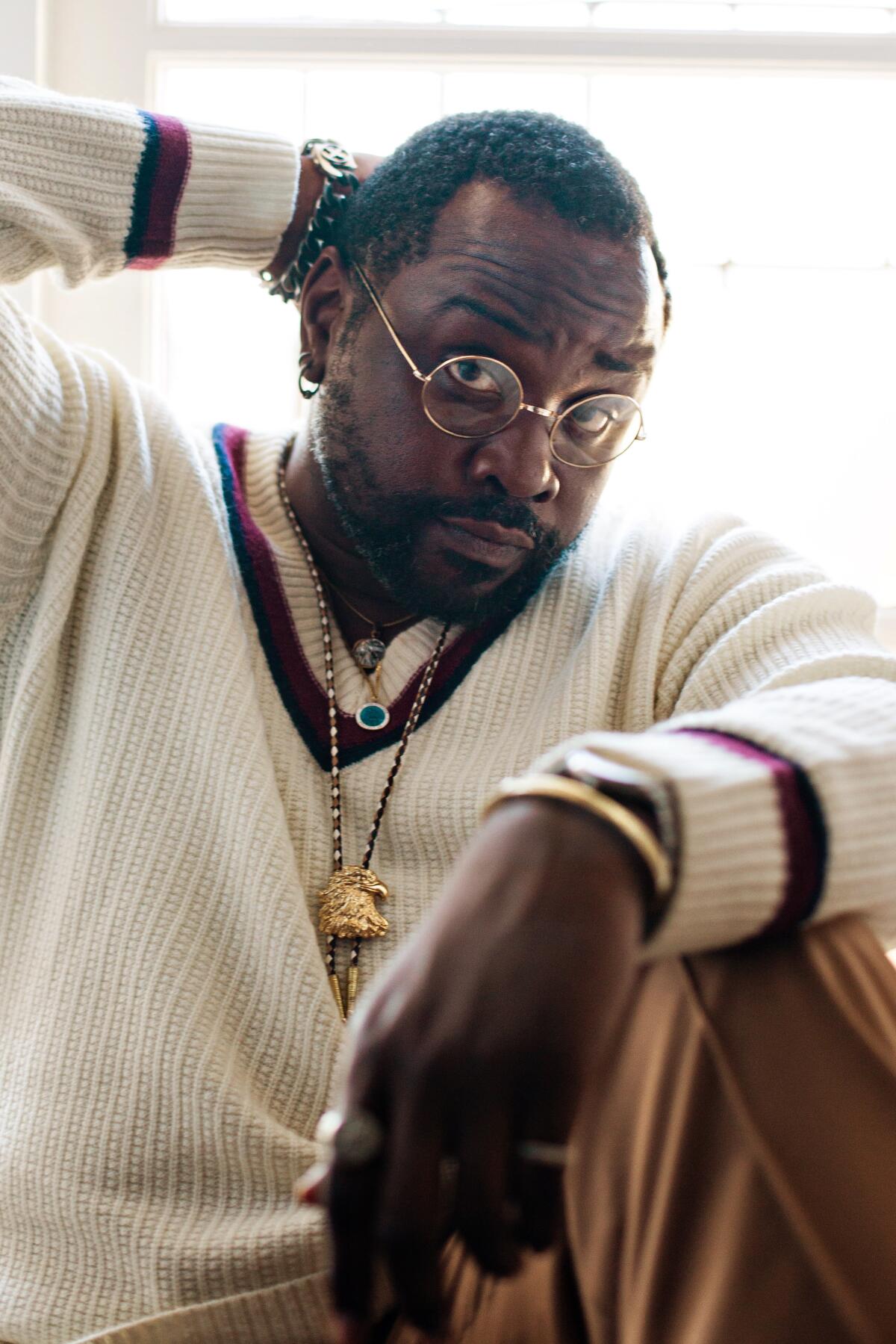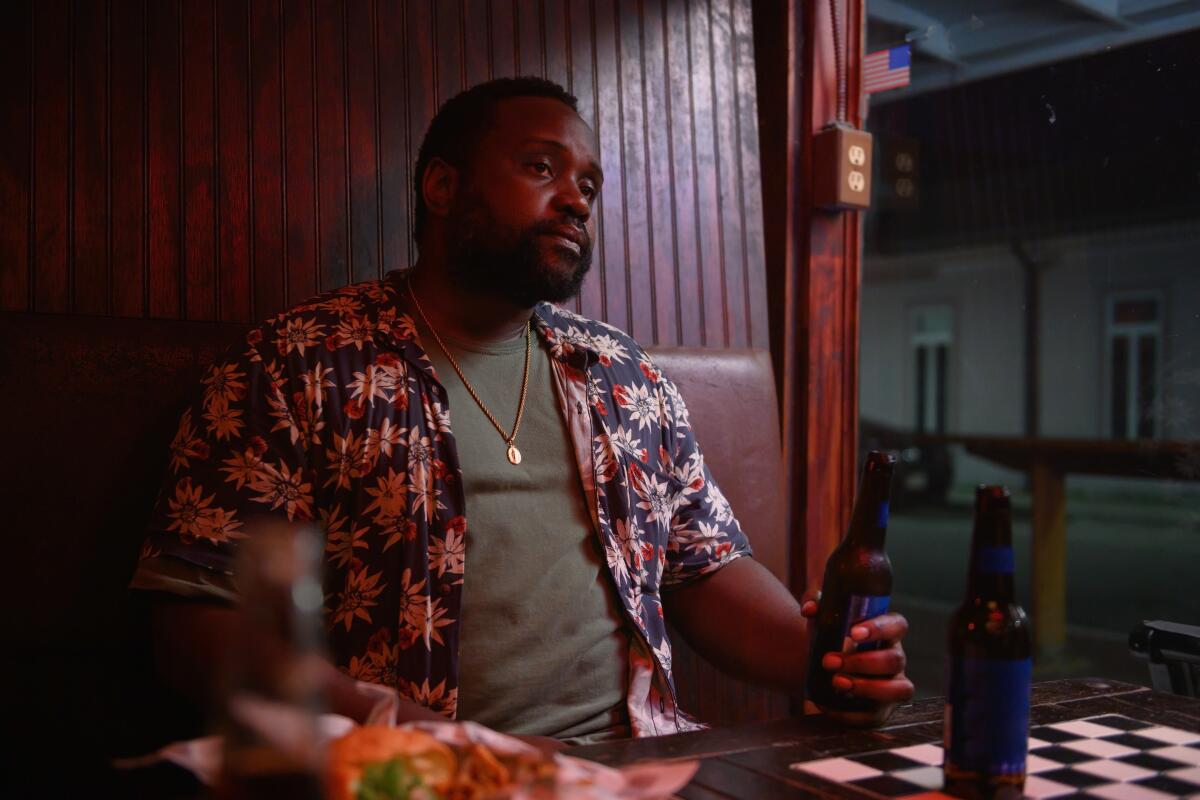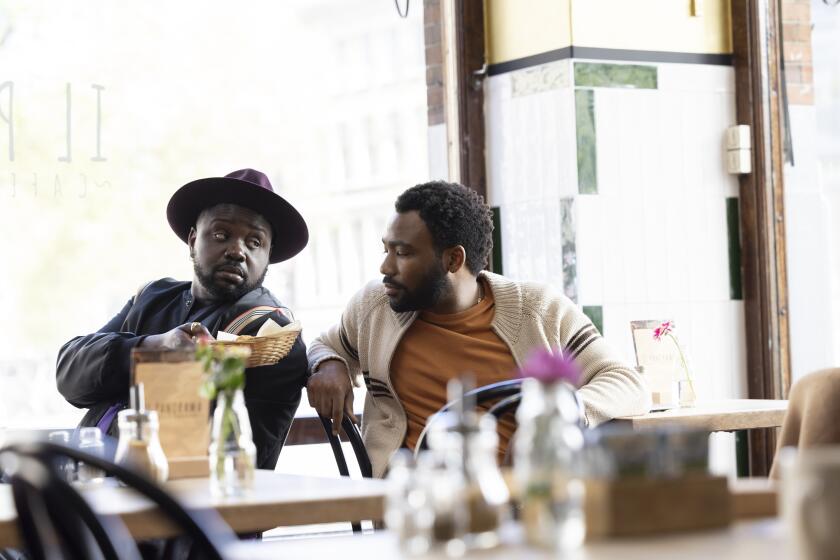How Brian Tyree Henry turns his personal grief into art with âCausewayâ

Brian Tyree Henry had been filming âCausewayâ with Jennifer Lawrence in the summer of 2019 when they and director Lila Neugebauer felt something was gaining â the actorsâ chemistry â and something was missing: details to strengthen that chemistry and deepen Henryâs character James, a grieving New Orleans auto mechanic who befriends Lawrenceâs recuperating soldier Lynsey. In the time off taken to flesh out that onscreen relationship, the pandemic hit.
But when they returned to the set in 2021, the Emmy-nominated âAtlantaâ star had a richer role, and âCausewayâ had strengthened its portrait of how lost souls connect and heal. âWe realized it wasnât just about one personâs journey,â says Henry, who sat down recently â fresh from the âAtlantaâ series finale airing â to discuss why James was the right part at the right time in his career and life.
What do you need to see in a role to take it?
My imagination is tricky. I have to feel like I can relate to who this person is ⌠like thereâs something Iâm either willing to expose, or willing to challenge in myself. Can I wake up and care about this person every day? Itâs a relationship, honestly.
How did that apply to James in âCausewayâ?
I liked the stillness of him. I liked the presence he exuded by trying to hide from his grief. You know he knows everybody, but thereâs still this loneliness to him, this yearning to be seen for who he really is, to make a connection beyond the grief. That was reflective especially at that time of where I was in my life. In 2016, I lost my mother and that was going in tandem with my career rising. And it was really hard.

Was that when âCausewayâ first came along?
No, it was 2019, but grief doesnât go anywhere. Someone who goes through something tragic, you replay it in your mind all the time. Especially when youâre literally living with the reminder of something missing from you.
As James is, being an amputee.
I canât tell you how many times I would pick up the phone and call my mom. I was like âAw, sââ Then you have to deal with it. But when you can talk about it with somebody, whoâs like, âOh, I do the same sââ then after a while, you guys are just out and about, eating nachos. You didnât even know you werenât talking about it. Thatâs a big part of why I took âCauseway,â because I didnât want to keep going through this part of my life, replaying certain parts of loss. I wanted to expose it, lay it bare, then get over it.
When you resumed filming âCausewayâ after two years, what was different?
Thereâs a scene we crafted because I didnât want this man to be a person who just appears whenever Lynsey is in need. I didnât want this person to be an usher for her feelings. We know the trope, right? I was like, âWhat would make me feel locked in is if we knew this man had a life outside of this woman? Where does he live? Why donât we see the shared sense of community?â He can see in her a torture that he knows, but I wanted there to be a give and take. There has to be an investment.
Donald Glover, Brian Tyree Henry and Hiro Murai break down how the FX series comes together.
That would be the scene at his house after their night out drinking and talking?
I was really excited about that, because I wanted there to be this reveal of him where you could hear the cracks in his voice, the lightheartedness. You see that this man hasnât changed his house to fit the life he has now. Itâs empty and quiet. And just to have somebody there, what I really loved the most is her ability to listen to him. To just let him go. Because sometimes, instead of prodding and prying, if you just sit with a person, itâs amazing what comes from them.
What about Brian and Jennifer â are you two beer-drinking, park bench pals now?
I had never really imagined Iâd be able to do a scene across from someone of that caliber, but that was my own self-defeating sâ. Weâre actually both idiots, we sâ talk, we call each other on our sâ. We were both searching for a kind of connection, a challenge even, trying to get back to our roots. It was so comfortable. I think thatâs how âCausewayâ grew, because of who we were between takes.
With all thatâs happened to you, personally and professionally, what are your thoughts on the end of âAtlantaâ and letting go of Alfred?
I donât know if Iâll ever be able to let him go. I carried this man with me for six years. So wherever I grew, he had to grow too. He gave me such a platform to really express everything that I was feeling, all the fears, the pain, the joy. He gave me a place to hold up a mirror to myself and be like, âI got you, youâre protected, youâre not crazy for what youâre seeing or going through.â I wanted him to find a place of home, and, in essence, that is exactly what was happening with me, what was going on in my life. So Iâm very happy how we concluded it for him. Very happy.
More to Read
From the Oscars to the Emmys.
Get the Envelope newsletter for exclusive awards season coverage, behind-the-scenes stories from the Envelope podcast and columnist Glenn Whippâs must-read analysis.
You may occasionally receive promotional content from the Los Angeles Times.











